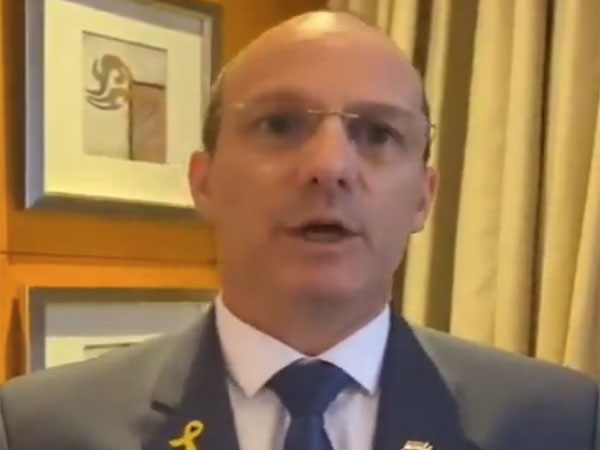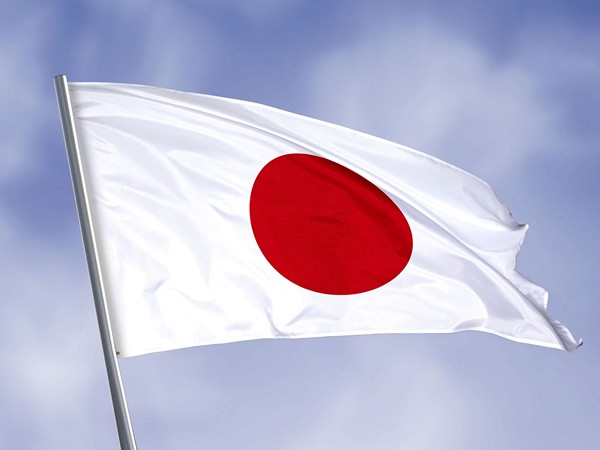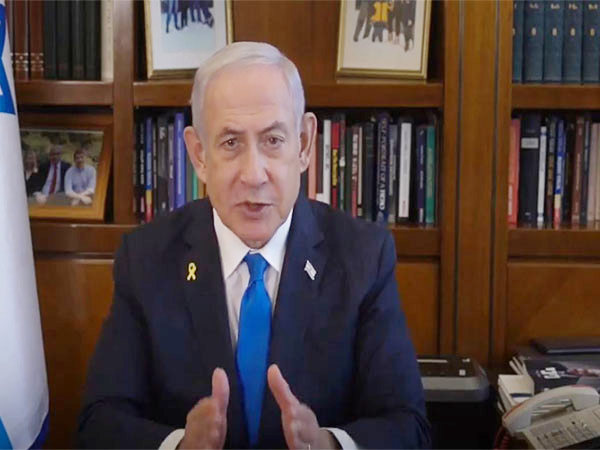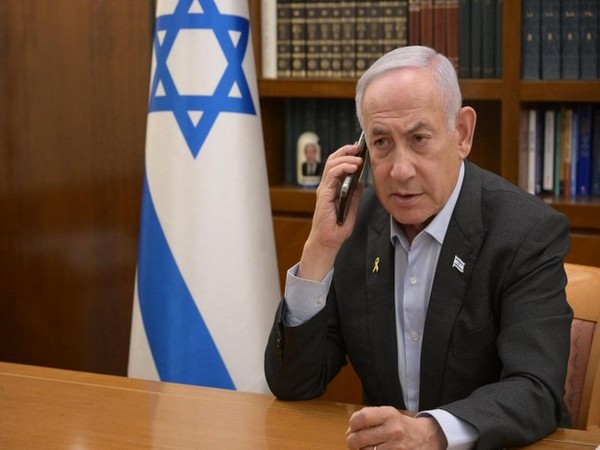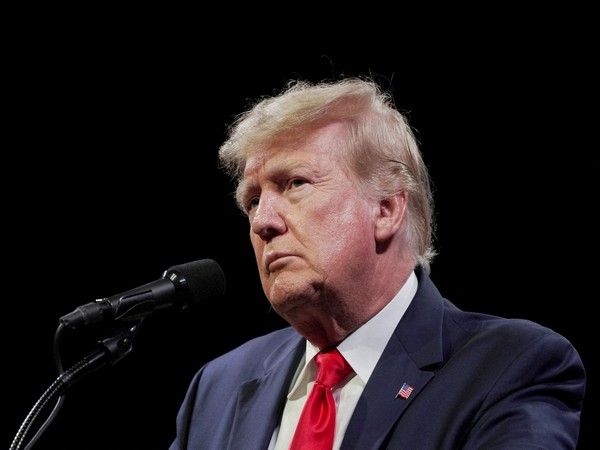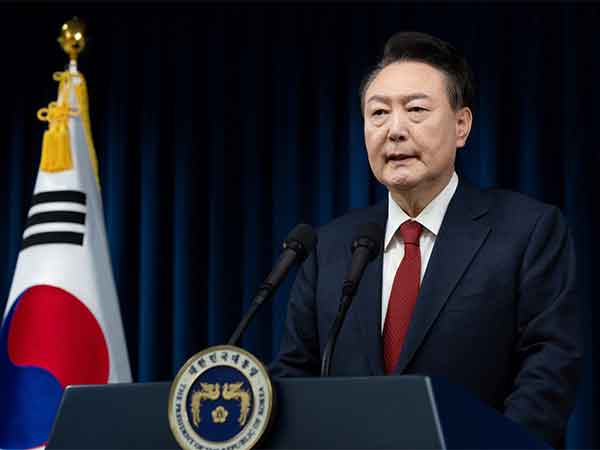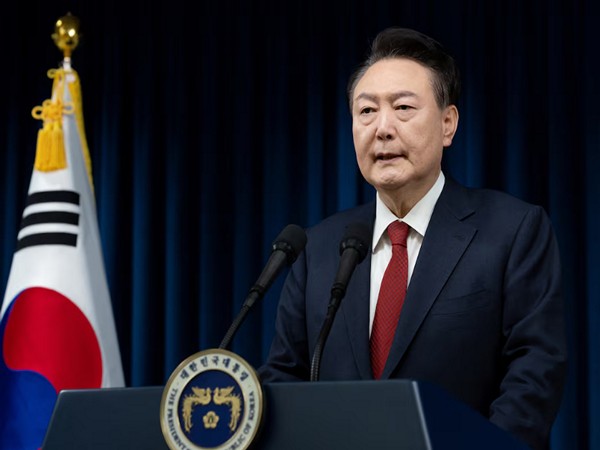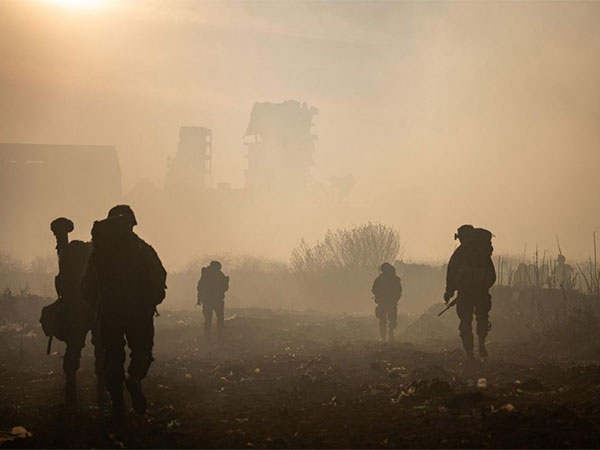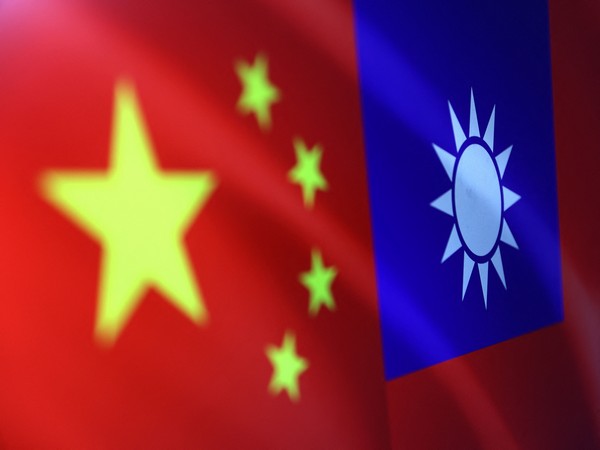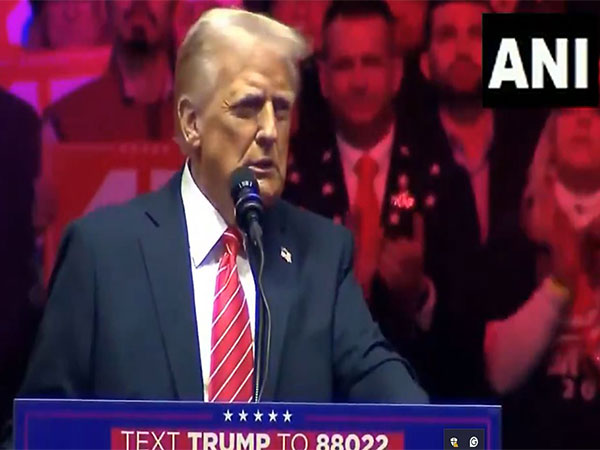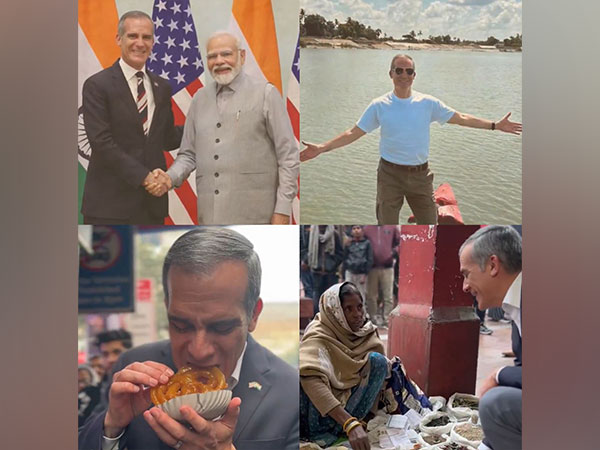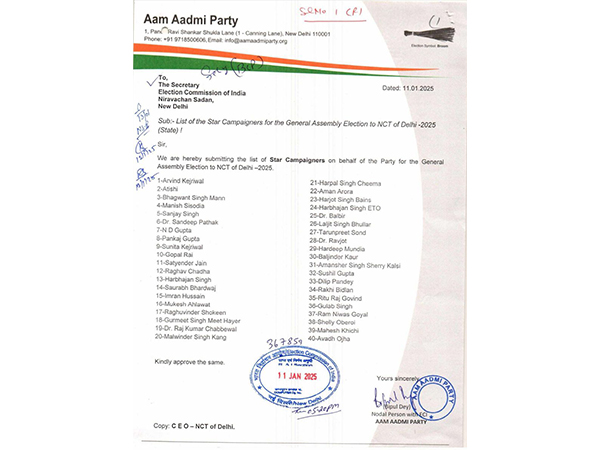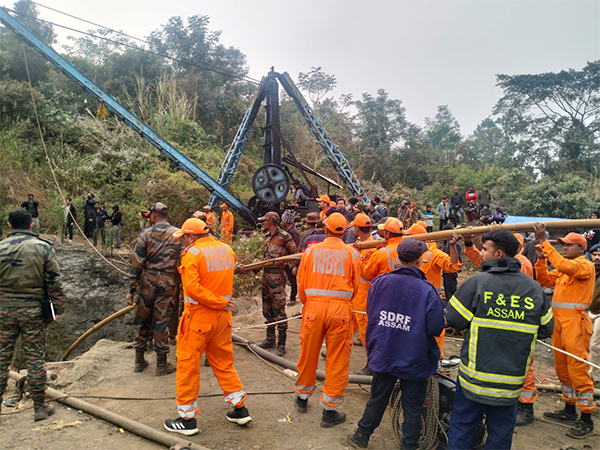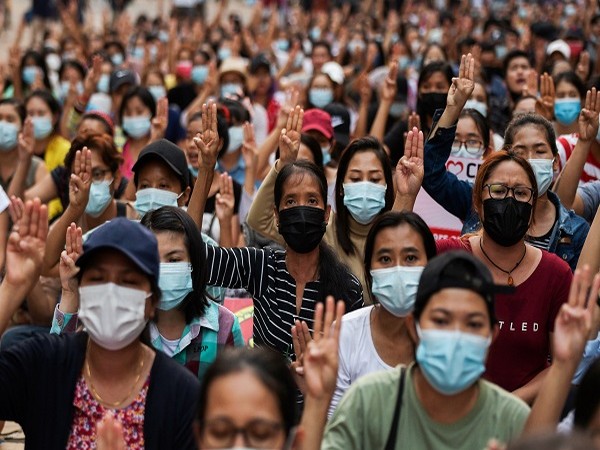
People flash a three-finger salute as they take part in an anti-coup night protest at Hledan junction in Yangon, Myanmar, March 14, 2021. REUTERS/Stringer - RC21BM98T20U
By Komal Sharma
New Delhi [India], December 31 (ANI): The military coup in Myanmar led to a major power shift in 2021, marking the end of a short-lived stint of democracy in the country, and now it seems the situation isn’t likely to change anytime soon.
Myanmar is suffering and the situation prevailing in the south Asian country is nightmarish with the military taking charge of all affairs and throwing the democratically-elected government behind bars. While military seizing power in a coup is nothing new in the world, it is shocking how easily it can be carried out even in today’s time, especially in a country that sits right next to the largest democracy in the world, India.
In a telephonic interaction with ANI, Harsh V Pant, Professor of International Relations at King’s College, London, said India cannot take a black-and-white approach to Myanmar. “India has to engage with whoever is governing Myanmar for the simple reason that India has so many interests which are reliant upon the help that India receives from the governing authorities.”
He continued by saying that “whether we look at the security situation in the border areas in the Northeast or China‘s growing imprint, whether you look at India’s access to South-east and East Asia, all of these in one way or another rely upon strong India-Myanmar relations.”
As a democracy and close neighbor, India has a deep interest in the democratic transition process in Myanmar. However, Pant said that’s not the only objective India has.
“Unlike the West which is far away, which can take a stand on democracy. And you know, India is not a country that can afford to take such a one-dimensional or uni-dimensional stand. The more sanctions it imposes on Myanmar, the more entrenched China becomes in Myanmar and more difficult life becomes for India,” he said.
Talking about the recent two-day visit of Foreign Secretary Harsh Vardhan Shringla to Myanmar, he said that India is willing to reach out to the military government and would like the channels of communication to remain open with them.
Recently, Shringla paid a two-day working visit to Myanmar and met Myanmar’s State Administrative Council’s chairman. During the visit, he held meetings with members of political parties, emphasizing India’s interest in seeing Myanmar‘s return to democracy at the earliest.
Shringla also stressed the need to put an end to any violence and maintain peace and stability in the border areas.
While talking about China approaching Myanmar, Pant said, “China has to be kept in mind as Beijing is a big cause of worry, it has really moved in very rapidly after the coming of the military government.”
“But all of this is the reason why India is not giving up on the Myanmar government. I think it’s essential pragmatism, that has always been the cornerstone of India’s engagement with Myanmar is likely to continue,” he added.
Meanwhile, in interaction with ANI, Dr Raj Kumar Sharma, Maharishi Kanad Post-Doc Fellow at the Delhi School of Transnational Affairs, University of Delhi, said, “The current situation in Myanmar is a fallout between the civilian and military forces. This has also happened in the past and the military has launched a crackdown against the forces that support democracy in Myanmar, including deposed leader Aung San Suu Kyi.”
Sharma also highlighted India’s approach towards the ruling military junta. He said, “India’s Myanmar policy has become more pragmatic now as New Delhi has to protect its interests there while at the same time; India also wants that internal democracy should not be scuttled in the country.”
He further said, “Bilaterally, India is likely to nudge the military junta to accommodate the interests of its political opponents. At the same time, India would also advise the US and other Western countries to refrain from using sanctions against the military junta.”
“These sanctions, if imposed, would push Myanmar in China‘s embrace and would have a counter-productive impact. Myanmar is a test case for India-US understanding on the Indo-Pacific and an isolated Myanmar could help China in sabotaging the idea of Indo-Pacific.”
Talking about the visit of Foreign Secretary Harsh Vardhan Shringla to Myanmar, Sharma said it was an attempt by India to keep the channel of communication open with the Myanmar junta and signal that India does not want to isolate the junta.
“Engagement would be the way forward with Myanmar while India would keep nudging the junta to allow democracy to flourish. The foreign secretary had said during the visit that India would like to see the return of democracy to Myanmar,” he added.
He also talked about the bilateral relation, including trade between India and Myanmar and said, “Trade relations have been hampered between countries due to the ongoing COVID-19 pandemic, India-Myanmar trade is no exception.”
“In recent years, India has emerged as one of the top trading partners for Myanmar which has lessened its dependence on China. India would need to further push its connectivity initiatives as their completion would increase trade with Myanmar and also economically integrate the economy of India’s north-eastern states with Myanmar,” he said.
India has been a major trading partner of Myanmar for decades. Ever since the signing of the India-Myanmar trade agreement in 1970, bilateral trade has grown steadily.
According to the Embassy of India in Myanmar, bilateral trade has risen from USD 328 million in 1997-98 to USD 921.19 in 2006-7; USD 2.18 billion in 2013-14 and USD 2.17 Billion in 2016-17.
Sharma also underlined that China has been a constant factor in India’s ties with Myanmar and this would continue to be the case in the coming months also. India has to ensure that Myanmar does not allow China to carry out activities that could negatively impinge on India’s security, he added.
According to the Indian embassy in Myanmar, as a democracy and close neighbor, India has been involved in the democratic transition process in Myanmar and in this context has worked with various stakeholders in developing capacities on democratic systems and practices.
India proposes to renew these efforts for Myanmar to emerge as a stable, democratic, federal union in accordance with the wishes of the people of Myanmar, the embassy said. India shares a long land border of over 1600 Km with Myanmar as well as a maritime boundary in the Bay of Bengal. Four north-eastern states viz. Arunachal Pradesh, Nagaland, Manipur and Mizoram share boundaries with Myanmar.
In a recent development in Myanmar, deposed Myanmar leader Aung San Suu Kyi has been sentenced to four-year imprisonment for inciting dissent against the military and breaching Covid rules. Suu Kyi, 76, faces almost a dozen charges including incitement, violation of Covid-19 protocols and violation of the Official Secrets Act, which add up to a combined maximum sentence of more than 100 years. However, she has rejected all allegations. Meanwhile, several countries including India have expressed their concerns over the verdict.
In addition, Myanmar‘s military leader Min Aung Hlaing had declared himself prime minister of the country saying he plans to be in charge for two years during an extended state of emergency before holding an election in 2023. (ANI)






